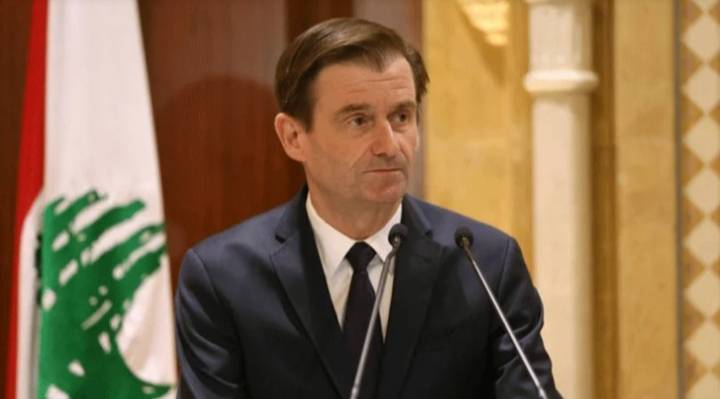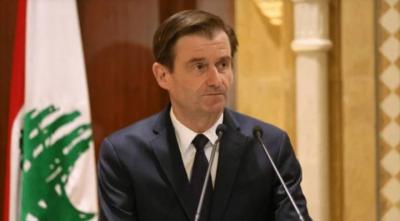The presidential candidate, Ms. May Rihani, responded to an invitation from the Washington Institute for Near East Policy to participate in a roundtable discussion regarding her candidacy for the presidency in Lebanon. The dialogue was moderated by Hanin Ghaddar, editor-in-chief of NOW News, who is also a member of the institute. The discussion included the participation of Mr. Joshua Lakin from the U.S. State Department, Mr. Louis Douguet Gross from the French State Department, Dr. Robert Satloff, executive director of the Washington Institute, Mr. Greg Neblett, deputy president of the Management and Training Foundation, Mr. Jean Abi Nader, vice president of the American Task Force for Lebanon, and Dr. Ghaith Al-Omari, former executive director of the American Task Force for Palestine.
In the first part of the discussion, Rihani presented her vision and electoral program centered on four main topics:
- Implementation of the constitution to restore Lebanon's sovereignty and protect it clearly.
- Rebuilding constructive and fruitful relationships with all Arab countries, starting with the Gulf countries and then with the West and other democratic nations.
- Reviving the economy by focusing on two main priorities: signing an agreement with the International Monetary Fund and executing the agreed-upon program, and restructuring all public institutions to curb rampant corruption.
- Applying the principle of complete judicial independence to protect it from political interference.
After presenting her program, participants discussed several points with Rihani, explaining the impact of the election process on Lebanon's sovereignty, reducing corruption in public institutions, and strengthening Lebanon's foreign relations, especially with the Kingdom of Saudi Arabia. She also explained her stance on Hezbollah's weapons and was asked about Lebanon's readiness to elect a woman as president and the methods she might use to implement her program.
Questions centered on the reasons for the delay in electing a new president, the identities of key players in the electoral process, and the role of regional players. The presidential candidate held a series of meetings in the U.S. capital that included former U.S. Under Secretary of State for Political Affairs, Ambassador David Hale. This occasion allowed her to present presidential affairs and Lebanon's future, with Hale expressing concerns about the impact of delaying the election of a new president on the situation in Lebanon, emphasizing that such a delay is not in the interest of the country of cedar. He stressed the necessity for Lebanese people to rely on themselves to elect a sovereign, non-corrupt president rather than depending on external influences.
Additionally, Ms. Rihani held meetings with major Lebanese-American organizations, such as the Global Lebanese Cultural Union, the Lebanese-American Task Force, and the Lebanese-American Coordinating Committee, discussing the presidential vacancy and how to resolve it. Leaders of these organizations expressed their conviction that once wise and sovereign leadership takes over the governance in Lebanon, work could begin on executing reforms swiftly, indicating the start of a radical change process.
For her part, Rihani confirmed that the meetings she conducted in Washington with groups and organizations involved in the Lebanese file proved that the Lebanese expatriate is keen on preserving Lebanese sovereignty and achieving urgent reforms, just as residents in Lebanon are devoted to their country.




